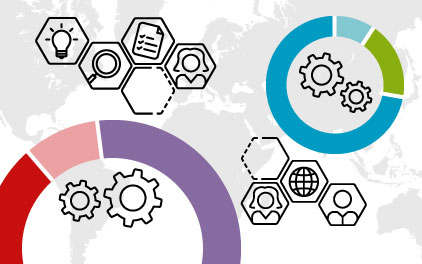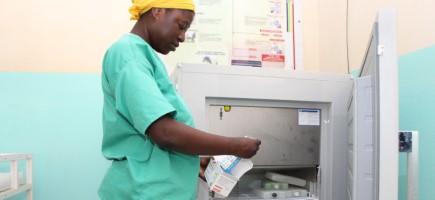

- RURAL DEVELOPMENT
- SUSTAINABLE INFRASTRUCTURE
- SOCIAL DEVELOPMENT
- GOVERNANCE AND DEMOCRACY
Malawi
GIZ local staff
National employees: 177
International employees: 35
Development workers: 4
Integrated experts: 1
(as at: 31.12.2024)
GIZ has maintained an office in Lilongwe since 1998 and has been working in Malawi on behalf of the German Federal Ministry for Economic Cooperation and Development (BMZ) for more than 30 years. Malawi is a priority partner country for German international development cooperation. Germany’s aim in Malawi is to contribute to poverty reduction as well as inclusive and sustainable growth.
Under the Constitution adopted in 1995, Malawi is a presidential republic with a multi-party political system. Five governments have been elected since 1995.
With an annual per capita income of EUR 283 (World Bank 2017), Malawi is one of the world’s poorest and least-developed countries. It ranks 171 out of 188 countries in the United Nation’s (UN) Human Development Index (2017). With a population of roughly 17.5 million people, its population is growing rapidly and posing major problems for the country regarding to food security and the provision of social services. Other constraints on development in Malawi are its unequal income distribution, poor access to education and primary health care, a very high prevalence of HIV/AIDS, high reliance on rain fed agriculture, lack of access to energy, climate change and a weak private sector.
The present Government is working to reduce poverty and pursuing broad-based economic development policies. All its development measures are based on the Malawi Growth and Development Strategy (MDGS) III. GIZ is working with local and international partners to reduce poverty, achieve long-term improvements in basic education and health care, and promote the private sector.
Malawian-German cooperation currently focuses on three priority areas:
- Health and healthcare
- Private sector development
- Public finance and social security
The current focus on strengthening the health care system for mothers and newborns is sufficient. The Health Sector Reforms component works with the Ministry of Health and Population (MoHP) on decentralisation in the sector, reforms of central hospitals and health financing. The Quality Management component assists MoHP departments with the implementation of national policies and strategies related to quality, data management and data use and youth friendly health services. The Human Resourses for Health component supports the MoHP and other relevant institutions in improving training and continuous the professional development of health workers.
Improving initial Primary Teacher Training and capacities of lecturers at Teacher Training Colleges, supporting the implementation of revised primary curricula and supporting home grown school feeding programmes is the core focus of development in education.
The activities carried out in the private sector translate into higher productivity and improved incomes of Malawian smallholders and lead to higher employment in the agri-business sector thereby. This increases food security, supports the development of value chains, and ensures that expertise, relevant innovations and technologies are available to farmers through the Farmer Field Schools (FFS) approach.
GIZ is also working on behalf of BMZ in the areas of public finance administration and social security.
The approach of the German engagement in Malawi focuses on capacity development of the Public Financial and Economic Management institutions to make them more accountable, transparent and efficient. German technical cooperation supports the institutions along the entire budget cycle of public financial management; from budget planning and forecasting to budget implementation, oversight and control by internal and external bodies.





